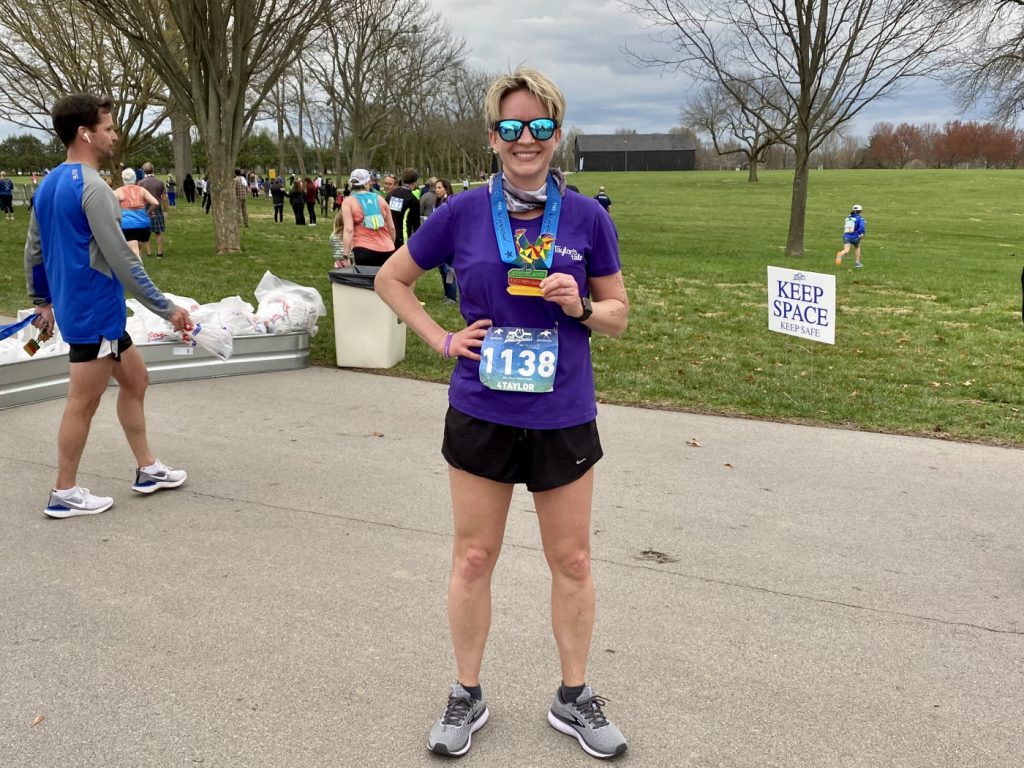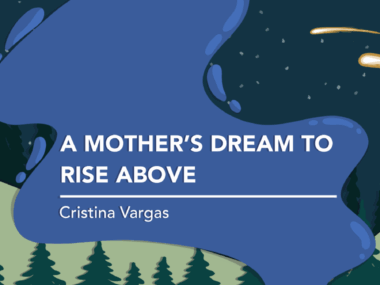Running for a Greater Purpose
Written by |

At the end of March, I ran a real race for the first time in 16 months, traveling to the “Horse Capital of the World” for Lexington, Kentucky’s RunTheBluegrass Half Marathon. The contest christened Kentucky as the 24th of 50 states in my nationwide quest to honor my late sister, Taylor.
Taylor took her last breath on a crisp fall day in 2018, more than 12 years after her CLN1 disease (Batten disease) diagnosis. She was only 20 years old. But I’m still puffing and pumping, and pushing my way to finish lines across the United States. Because while some people run for their health or the competition, as one reporter remarked on my Montana leg of the journey, I run for an even greater purpose.
Why I run
Even a pandemic couldn’t put a stop to that purpose, though it did pump the brakes. If not for COVID-19, I may have already completed the faraway West Coast (I live in South Carolina, just outside of Charlotte), or filled in a few more New England states on the map that hangs on my home office wall.
Instead, I’ve laced my shoes and launched solo jaunts in and around my hometown, sometimes with a small cheering section (my mom shadowed me in her car on my virtual crack at 2020’s scrapped Jackson Hole Half Marathon), but more often with only my own heart, feet, and soul to keep me going.
But why? Why do I slip on my purple Taylor’s Tale shirt, write 4TAYLOR on my left arm, and cover 13.1 miles on foot for an imaginary race without a medal? Why do I do it for real races? Why do I run sprint repeats on the street outside my home before putting in a full day of work or leave my family for two-hour runs on the weekends?
I used to do it for the press. (Google “Laura King Edwards.” You’ll get about 24 million results, a reasonable number of which actually have something to do with Taylor’s story or me.) I’ve raised money for our charity. (My blindfolded half-marathons, and even my regular races, have moved people worldwide to donate, and I also donate my author royalties from the sale of my first book, “Run to the Light.”)
Those are good reasons to run, and they continue to motivate me even years after my sister’s untimely death. But mostly, I run for Taylor. To let her know I haven’t forgotten her — and never will. Because I know she’s watching, especially in those moments when I’m climbing a tough hill, and like magic, my lungs fill with air and my legs feel like wings.
My sister was a runner, too, even finishing her first race before I — a lifelong athlete — toed the starting line of a footrace for the first time. But Taylor was blind when she joined the national nonprofit Girls on the Run at her school in the fifth grade. She was already struggling in other ways, too, though she was mostly able to mask them.
What I’ve learned
That courage opened up a whole new perspective for me. It taught me to give thanks for what I have, not to grieve for what I don’t.
Losing Taylor taught me I can still have hope for tomorrow. That I can still believe, even if “believe” doesn’t mean what I thought it meant in the beginning.
Despite my unwanted break from racing, I ran like the wind at RunTheBluegrass in March. Because if something’s in your bones, you never really forget it. And while I lost Taylor, I can still see, hear, and feel the sister who changed me and, indeed, the world. Because if you love someone, they’ll dwell in your heart forever, no matter how long they’ve been gone.
***
Note: Batten Disease News is strictly a news and information website about the disease. It does not provide medical advice, diagnosis, or treatment. This content is not intended to be a substitute for professional medical advice, diagnosis, or treatment. Always seek the advice of your physician or other qualified health provider with any questions you may have regarding a medical condition. Never disregard professional medical advice or delay in seeking it because of something you have read on this website. The opinions expressed in this column are not those of Batten Disease News or its parent company, Bionews, and are intended to spark discussion about issues pertaining to Batten disease.






Leave a comment
Fill in the required fields to post. Your email address will not be published.